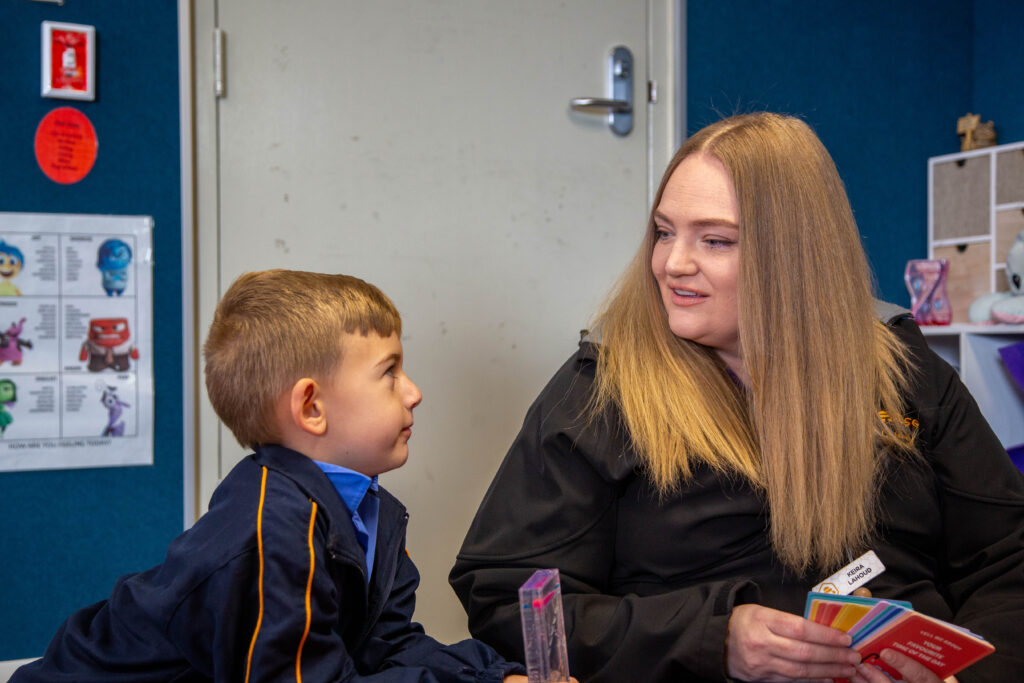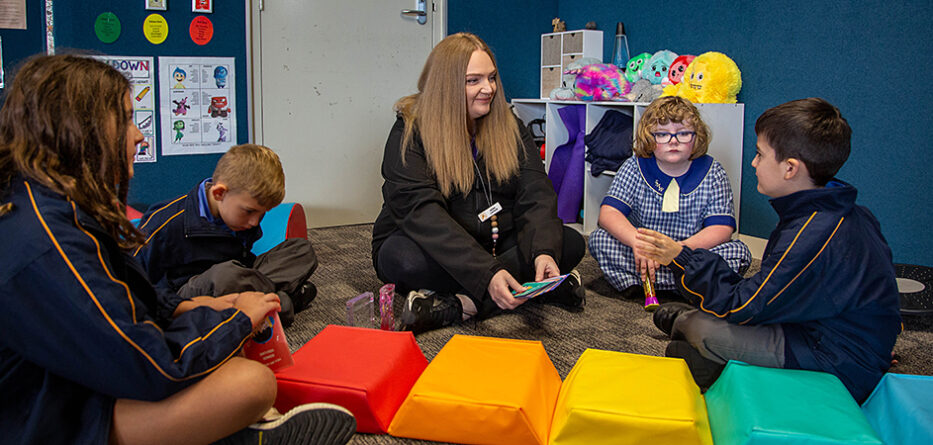Over the next few months, as part of the Synod process, Bishop Vincent is asking us to put our feelings about the Church into words. This includes children’s feelings, too. But even for adults, expressing our emotions effectively is sometimes easier said than done.
Today, children are facing even more challenges when it comes to sharing their feelings thoughtfully through words, especially as technology continues to advance.
Keira Lahoud, Service Coordinator of six years at Ambrose School Age Care, St Matthew’s Windsor, acknowledges this hurdle. “Coming out of the pandemic, face-to-face communication with peers was very limited. This has forced children to adapt by using other methods of communication, such as social media.”
Keira loves her role at Ambrose, as it has given her the opportunity to deliver Catholic values of respect, encouragement and care while forming great relationships with families in the community. Through her job, Keira has come to the conclusion that for children to connect the dots between their feelings and be able to express their emotions, they need a safe space.
“Children tend to internalise their feelings as they grow older, hindering their ability to communicate how they’re feeling through words. As parents, caregivers and educators, it is important to show our children how to walk with God both in action and words, despite the temptation to revert to digital means.”
Asking open-ended questions is a simple strategy for encouraging children to express themselves through words.

Service Coordinator Keira Lahoud (left) speaks with a student at Ambrose School Age Care, St Matthew’s Windsor. Image: Diocese of Parramatta
“I find it important to let children know that while they’re at Ambrose, they’re in a safe place where they can discuss their feelings openly.” Keira observes that questions like, “How do you feel when you’re angry?” or “Tell me about how you’re feeling?” encourage children to explore their emotions and better articulate their feelings.
Keira continues, “We as adults need to understand the context of the child’s adversity, as it allows us to determine the best path and plan for implementing individual support strategies.” Using phrases like, “I can see you’re feeling frustrated,” or “It sounds like you’re really happy about that!” encourages discussion and models emotional intelligence.
Creating structure is also essential to improving a child’s ability to express their emotions in a positive way. Helping a child to ‘sort through’ feelings can help them find their place in the world, whether it be a friendship group or the wider community, and lead to improved confidence and better verbal communication. Group time with prayer, celebrations and sharing establishes togetherness at Ambrose.
With the rise in technology and the noticeable decrease in face-to-face interactions overall, many young people may continue to struggle with how to express themselves effectively through words. For this reason, Keira believes it is becoming increasingly important for adults to anticipate what a child may be feeling through observation of their non-verbal cues.
“We use a number of strategies at Ambrose,” she explains. “We encourage children to express their feelings through crafts, group discussions, and in the sensory space we share with St Matthew’s which is designed to support children to self-regulate.”
By using such strategies, adults can help children feel more comfortable in expressing their emotions verbally and provide them with the tools they need to navigate their feelings in a healthy way.
Ways to help build confidence with words
- Establish a safe space where honesty and openness is valued.
- Use open-ended questions to encourage dialogue.
- Guide your child in creating structure.
- Introduce prayer to your family’s daily routine.
- Look for verbal cues that indicate what your child is unable to express verbally.
Do you know someone who would like to work with an organisation with Catholic values? Ambrose is always looking for great people to join our team. Visit: www.ambrose.org.au/find-a-job/
Belinda Harding is a freelance writer and contributor to Catholic Outlook.
This article was originally published in the 2023 Ordinary Time | Winter edition of the Catholic Outlook Magazine. You can read the digital version here.








